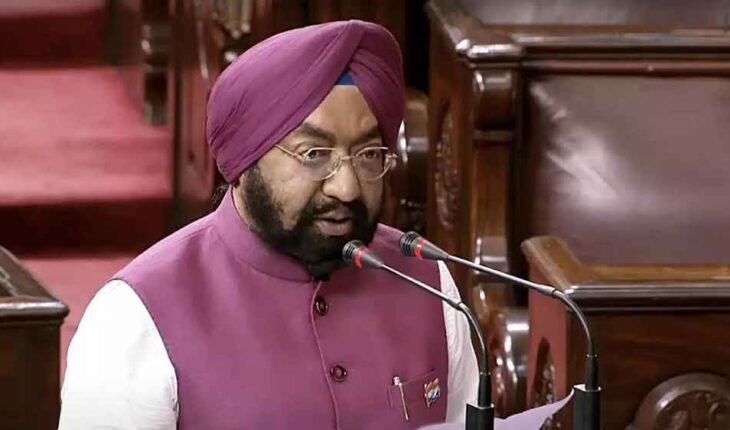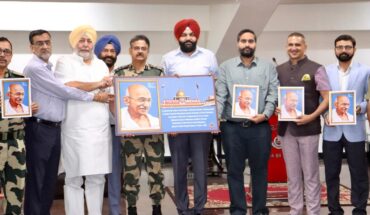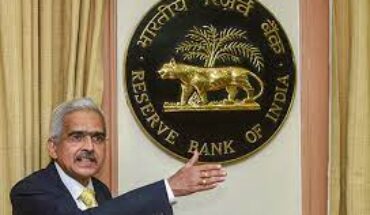New Delhi : Demanding representation of Punjab in fixing the minimum support price (MSP) of crops, Rajya Sabha Member from Punjab, Vikram Sahney, on Tuesday raised issues relating to supplementary demand for grants Bill presented in Parliament.
He highlighted that the net additional cash will be Rs 58,378 crore and it will add to the already high fiscal deficit of 5.9 per cent of the GDP against the mandated limit of three per cent by the Fiscal Responsibility and Budget Management Act.
On agriculture, Sahney demanded that there should be representation of Punjab in the minimum support price (MSP) and Commission for Agricultural Costs and Prices committees.
The MSP should be actually given for crops other than wheat and rice as notified. Sahney given example that MSP on corn is Rs 2,090 per ton but actually it is being sold between Rs 700 and Rs 1,000 per tonne.
He sought suitable budgetary provisions to provide crop residue machines like Happy Seeder and baler to remove and collect the stubble for use in renewable energy.
Sahney mentioned that inflation, especially food inflation, is very high.
He gave the example of McDonald taking tomatoes out of its food items due to unaffordable prices.
Supporting supplementary demand of Rs 649 crore for higher education, he said there is hardly any additional allocation for skill development and the allocation for State Skill Development Mission is declining in the past two years.
He said the allocation for Skill Development to Punjab has been reduced to 92 per cent. Sahney said no further funds have been allocated to price stabilisation fund.
Supporting additional allocation of Rs 7,000 crore demand for Food and Public Distribution, he demanded that the government should invest more in cold chain infrastructure and food processing as 40 per cent of the vegetables and fruits are going to waste.
As regards fertilizers, Sahney expressed concern over reduction of 30 per cent of the fertilizer subsidies in the last quarter and demanded that it should be reviewed in January to ensure optimum availability of fertilizers to the farmers.






